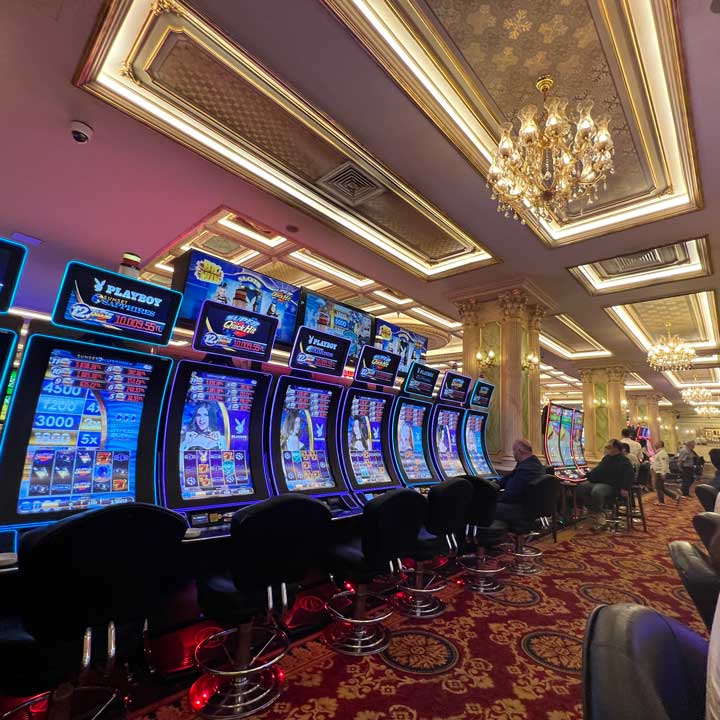Gambling on Slots and the Cultural Significance

Automated gaming has become a prominent activity in numerous cultures throughout the globe, transcending the confines of mere entertainment. With the bright illuminations and noises of gambling venues to the rising popularity of online services, gaming machines offer a distinct combination of randomness and thrill that fascinates numerous individuals. This type of gaming is not just about pulling sticks and viewing slot reels spin; it shows more profound community attitudes toward danger, luck, and the pursuit of fortune.
As we explore into the importance of slot gambling, we find that it acts as more than a leisure endeavor. It serves as a social connector, a form of relief, and also a well of creativity for numerous individuals. The attraction of hitting the jackpot strikes a chord across various demographics, often representing aspirations of riches and relaxation. By studying the evolution of video gambling and its position within multiple groups, we can more clearly comprehend its effect on contemporary traditions and the principles that it promotes.
Historical Context of Slot Gambling
Slot gaming has its origins in the final 19th century when the initial manual slot machine, known as the Liberty Bell, was developed by Charles Fey in 1895. This machine featured three rotating drums and a basic winnings method based on the arrangement of symbols, primarily centered on horseshoes, diamonds, and the iconic Liberty Bell. The introduction of this creation marked a significant shift in gambling, making it more accessible and attracting a wider audience who were enticed to the appeal of chance without the necessity for complicated tactics or skills.
As slot devices gained fame, the early 1900s century saw the growth of various styles and arrangements. The launch of electronic slot devices in the 1960s added a fresh layer of excitement with more captivating graphics and audio. This transition coincided with the wider social changes and the expansion of legalized gambling in different regions and countries. Video devices moved from being purely manual machines to becoming part of the gambling hall experience, appealing to a demographic that sought entertainment and leisure in gambling.
The late 1900s century and initial 21st century brought about yet another transformation with the arrival of digital advancements and virtual gambling. Digital slot devices became a staple of virtual casinos, allowing players to experience the thrill of slot gaming from the convenience of their houses. This online evolution influenced cultural views of gambling, making it not only a physical but also a digital activity. The growing recognition of gaming in culture has placed video devices as a significant cultural phenomenon, reflecting shifting views towards danger, chance, and entertainment.
Societal Impact on Communities
Video gambling has woven themselves into the fabric of modern culture, influencing community interactions and conduct. In many locales, these machines serve as meeting places where individuals come together, encouraging a sense of belonging and excitement. The bright lights and engaging sounds of slot machines create an environment that attracts not just experienced gamblers but also casual players seeking fun. This openness allows diverse groups of individuals to share moments, which include happy wins to the camaraderie found in shared losses.
The portrayal of gambling in media and pop culture has also played a significant role in affecting cultural perceptions. Films, TV shows, and advertisements often romanticize the allure of hitting the jackpot, contributing to a society where gambling is viewed as an adventurous and glamorous pastime. This image can lead to an growing fascination with gambling, especially among younger generations, shaping their views and ultimately affecting their involvement in gaming activities.
However, the social significance of this practice is not without its issues. As it gains prominence, issues about addiction and safe gaming practices emerge. Educational initiatives and programs aimed at educating players about the risks associated with gambling have become essential components of the discourse surrounding slot machines. Balancing the entertainment value of slot gambling with the potential for adverse effects is important, prompting ongoing discussions about its place within communities and the responsibility that comes with its enjoyment. slot mahjong ways
Psychological Dimensions of Fruit Gaming
Playing slots is strongly rooted in cognitive factors that can substantially influence gambler actions. One key element is the excitement of unpredictability that emerges from the fortuitous character of gambling devices. This chance creates a notion of anticipation, as gamblers anticipate possible rewards. The sporadic reward schedule, where participants obtain prizes at random stages, can lead to prolonged engagement, often leading to extended play sessions despite the odds being stacked to them.
Additionally, the visual aspects of gaming devices contribute to their emotional allure. Vibrant lights, enticing sounds, and visually attractive images all serve to amplify the physical interaction of playing. These characteristics can induce a feeling of elation and respite from reality, which many players consider attractive. The engaging setting created by contemporary slots capitalizes on emotional emotions, drawing gamblers into a state that can blur the distinction between recreation and obsessive gambling.
Ultimately, the interpersonal factor of playing slots is equally important. Many gambling venues are set up to foster socializing among players, creating a shared atmosphere. This social engagement can enhance the pleasure of betting, making it about the individual act of playing and more about communal moments. Nonetheless, the allure of social acceptance can also result in negative gambling behaviors, as individuals may feel pressure to conform to group norms around gambling practices.
